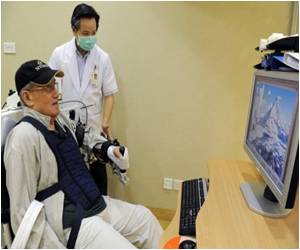
Most BMI operate, to be effective, requires significant training on the patient's side. Also, without several training sessions, patients will not able to perform some complex movements.
Jose Millán’s group at Ecole Polytechnique Federale de Lausanne in Switzerland have published introduced a BMI paradigm that enables neuroprosthetic devices to learn on the fly, thus decreasing patient training time.
The brain emits an electrical signal signifying the failure of the action when missing a step. This signal is called Error-related potential (ErrP). The new technology is based on the ErrP measured non-invasively using electroencephalographic (EEG) electrode arrays.
"According to our expectations, this new approach will become a key element of the next generation brain-machine interfaces that mimic the natural motor control. The prosthesis can function even if it does not have clear information about the target," said Jose Millan.
Advertisement











